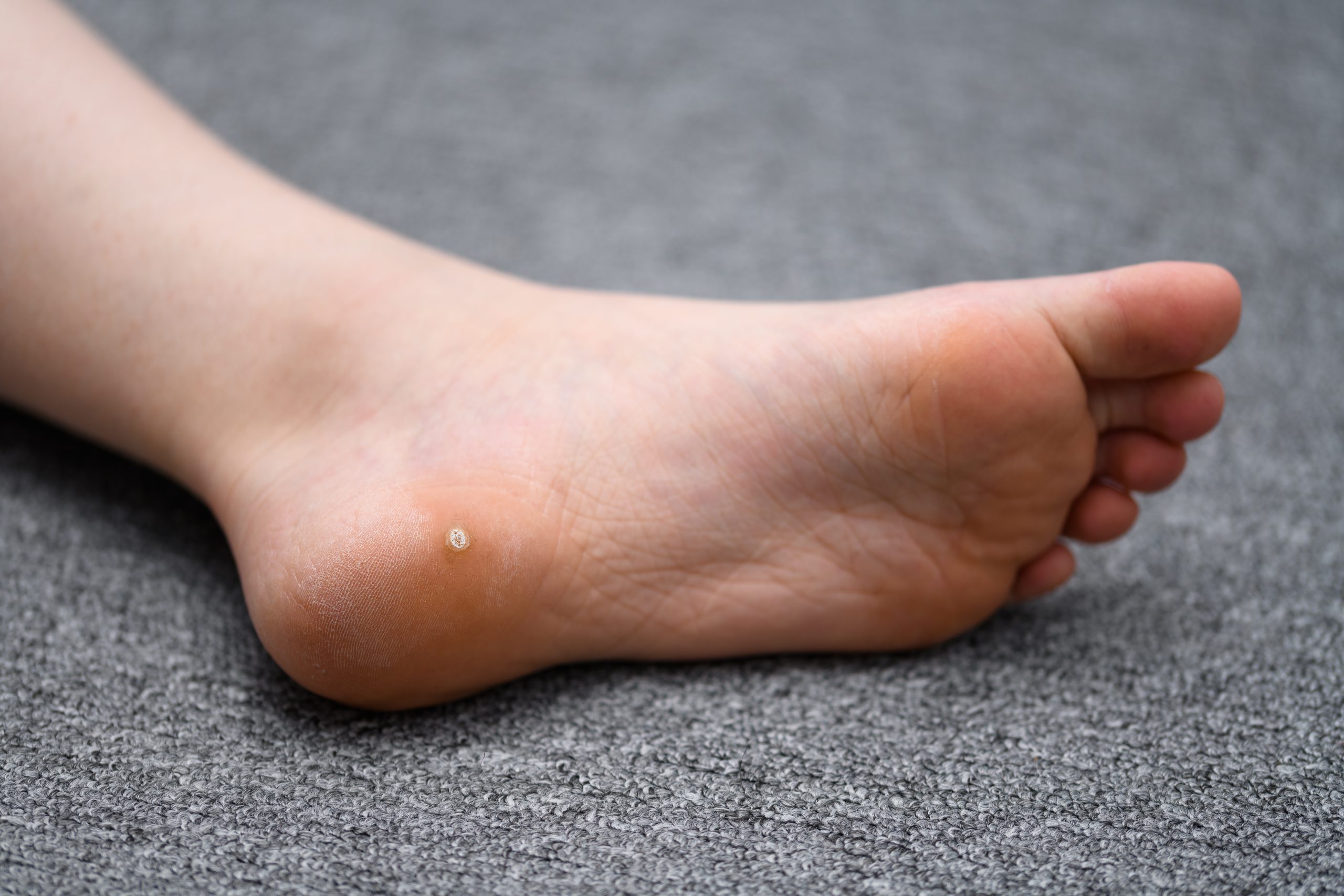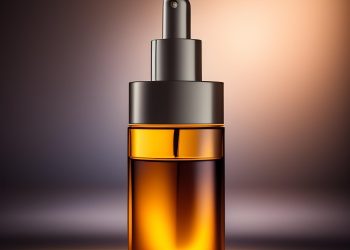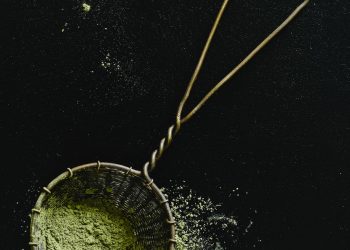It’s a well-known fact that mosquitoes bring disease, and this is why you do your best to avoid them as much as possible.
However, there are times when you can’t.
You fervently hope you don’t catch any deadly disease such as West Nile virus or Dengue fever so that the next thing you have to worry about are those itchy and annoying bumps that appear on your skin.
Contrary to popular belief, it’s not actually the bite that causes the appearance of bumps, but the allergic reaction of the immune system to the proteins in the saliva of the female mosquito [1].
Usually, the bumps would clear up on their own after a few days [2].
Sometimes, the bite can cause severe soreness, redness and inflammation, a condition that commonly affects children called skeeter syndrome [2].
It’s important to see a doctor when the following symptoms arise: itchiness in a larger area of the skin, skin lesions, bruises or hives at the site of the bite, inflammation of the lymph, and inflammation of the throat (anaphylaxis).
For less serious cases, using anti-itch creams may help.
But if you prefer the natural route, here are some home remedies that you can use.
In the following article, you will find:
- Natural ways of treating mosquito bites
- How to prepare these home remedies
- How to use them to get quick results
READ MORE: 8 Essential Oils for Bee Repellent
Effective Home Remedies for Mosquito Bites
1. Honey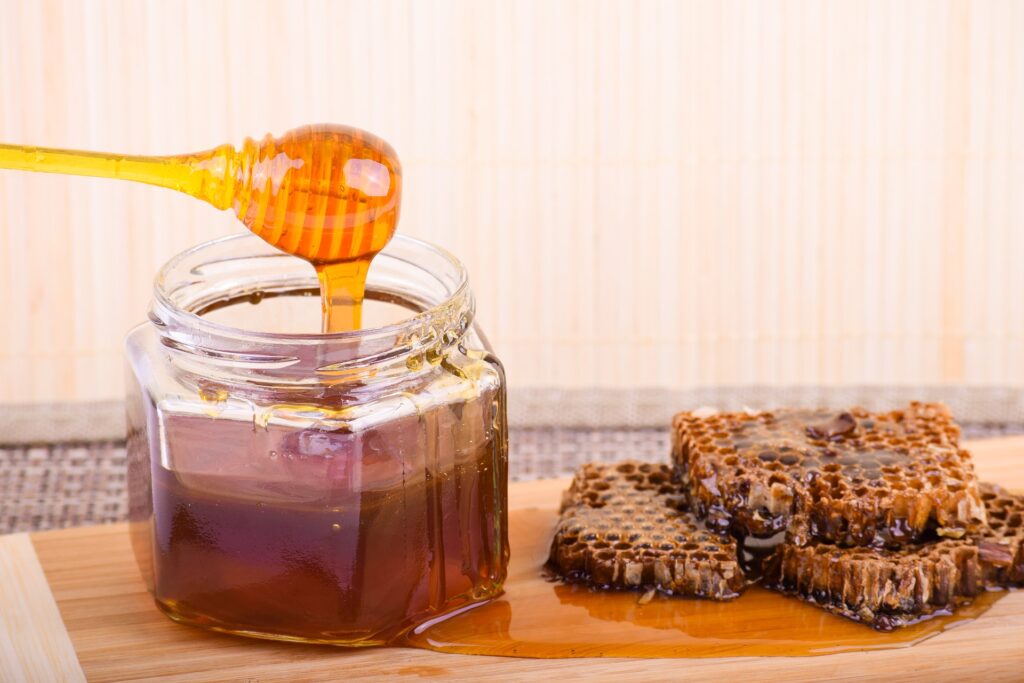
Although there’s no scientific study specifically confirming honey’s efficacy in treating mosquito bites, many people still rely on this natural remedy.
They believe that with honey’s soothing and anti-inflammatory effects, it can help get rid of the red bumps on the skin more quickly.
Its positive effects on various skin inflammatory diseases have been well documented in scientific research [3, 4, 5].
In one clinical trial, it was proven that honey can successfully reduce itching, irritation, and redness of the skin, working even more efficiently than zinc oxide ointment [4].
Contributing to honey’s ability to tone down inflammation is the presence of certain compounds namely ellagic acid, flavonoids and phenolic acids [5].
What You’ll Need:
- Raw and organic honey
Recommended Directions:
- Get a small amount of honey from the bottle or container.
- Using your finger, spot applies it on the bites on your skin.
- Wait for 30 minutes before rinsing it off with warm water.
- It’s important to give ample time for honey to take effect.
- But don’t let it sit for more than 30 minutes as it may cause a stinging sensation on the skin.
- This remedy will help minimize the swelling and redness.
READ MORE: 10+ Health Benefits of Honey (Backed by Science)
2. Aloe Vera
The gel extracted from the aloe vera plant has been found to “ease pain and inflammation” of the skin [6].
So for the longest time, this gel has been the go-to solution for all sorts of skin injuries and conditions, including cuts, abrasions, burns, eczema, poison ivy and many others [6].
Now, if you’d like instant relief from the pain and itchiness of mosquito bites, aloe vera gel is also a good remedy to try.
It is widely used for treating insect bites as it has bactericidal effects that can alleviate both swelling and itchiness of the skin [6].
Researchers from the Pennsylvania College of Podiatric Medicine in Philadelphia explain that aloe vera’s wound healing and anti-inflammatory activities are due to its major sugar called mannose-6-phosphate [7].
What You’ll Need:
- 1 aloe vera leaf
Recommended Directions:
- Slice the meaty part of the aloe vera leaf.
- Squeeze it hard to extract the gel.
- You can also buy aloe vera gel from natural food and health stores if you don’t have a plant at home.
- Put the gel in the refrigerator for 15 minutes.
- Apply to the skin and rub gently.
- Leave it on for 15 minutes before rinsing with cool water.
READ MORE: Aloe Vera For Heat Rash : 5 Reasons to Try Now!
3. Basil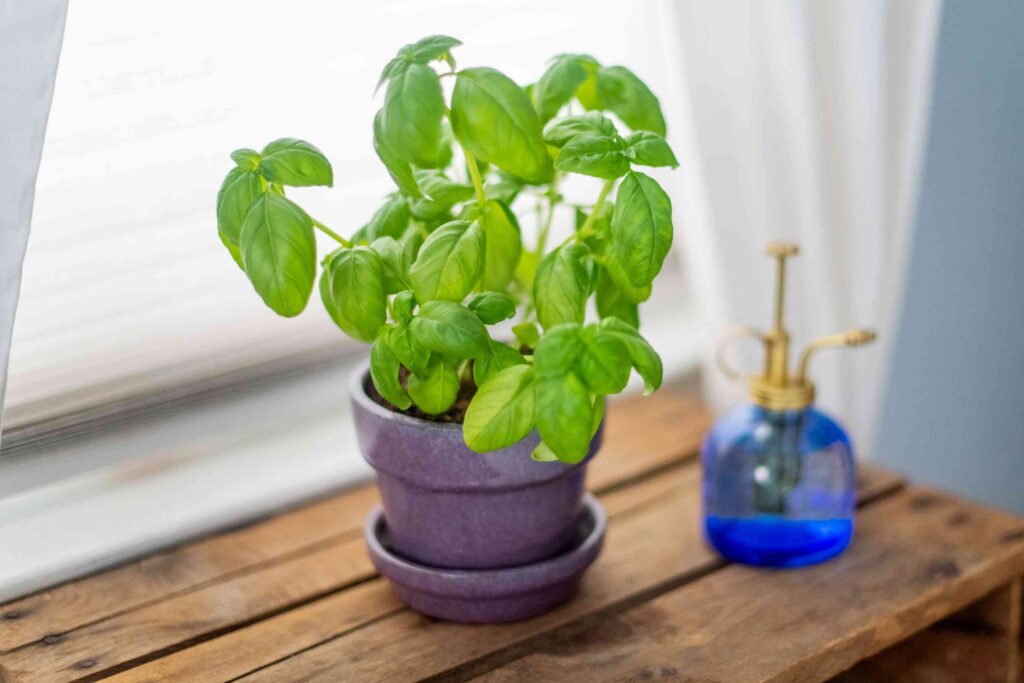
Among the countless medicinal plants used worldwide, those that belong to the genus Ocimum such as Ocimum sanctum (holy basil) and Ocimum basilicum (sweet basil) are most highly regarded for their broad spectrum of therapeutic purposes [8].
Basil has been used since the ancient times to cure many types of ailments including allergic reactions to mosquito bites.
Both holy basil and sweet basil demonstrate anti-inflammatory effects, as documented in various scientific studies [8, 9, 10].
Topical application of crushed or ground basil leaves can, therefore, reduce the swelling and soothe the skin to relieve itching.
Apart from its efficacy, it’s also important to note that basil is safe to use on the skin, and can easily be found as it is cultivated worldwide.
What You’ll Need:
- 1 teaspoon of water
- 1 cup of basil leaves
Recommended Directions:
- Blend basil and water in a food processor.
- Pulse until the consistency becomes similar to a paste.
- Using your fingers, apply a small amount of basil paste on red bumps on the skin.
- Let it sit for 15 to 30 minutes.
- Rinse with cool water afterward.
4. Tea Tree Oil
Lists of remedies for skin problems almost always include tea tree oil.
This shouldn’t come as a surprise at all, as this oil is recognized all over the world for its amazing benefits for skin health.
In Australia, it has been used for over a hundred years as an antiseptic and anti-inflammatory [11].
This means that you can turn to this remedy if you wish to get relief from those itchy and annoying mosquito bites.
As mentioned earlier, the skin’s allergic reaction to the saliva of mosquitoes causes the appearance of red bumps, and this is how tea tree oil can help.
Australian scientists confirm that tea tree oil has the ability to reduce inflammation triggered by histamine [12].
Moreover, the terpinen-4-ol suppresses the inflammatory monocytes in the body [13].
What You’ll Need:
- 2 drops of tea tree oil
- 1 teaspoon of jojoba oil
Recommended Directions:
- Combine tea tree oil and jojoba oil.
- Pour oil combination in a glass jar.
- Seal the glass jar.
- Shake to blend well.
- Use a cotton tip to apply a small amount of oil mixture on red bumps.
- Tea tree oil cannot be used undiluted.
- If jojoba oil is not available, you can use other carrier oils like coconut oil, almond oil or olive oil.
READ MORE: 11 Effective Ways to Use Tea Tree Oil for Warts
5. Juniper Oil
One of the essential oils that have diverse medicinal applications when applied topically is juniper.
Traditional healers rely on it for the alleviation of pain, scabies, heat rash, hemorrhoids, and many other related external conditions [14].
Juniper oil is also verified to have strong anti-inflammatory and antinociceptive properties [14].
This is why it is often applied on mosquito bites as it can relieve swelling and pain.
A clinical review assessing the efficacy of numerous herbal treatments for different skin conditions confirm that juniper oil possesses antipruritic properties that are helpful in reducing skin itchiness [15].
What You’ll Need:
- 2 drops of juniper oil
- 1 tablespoon of aloe vera gel
- 1 cup of basil leaves
- 1 cup of water
Recommended Directions:
- In a pot, boil water and basil leaves.
- Remove from heat.
- Strain the leaves and use the remaining water to rinse the affected skin.
- Afterwards, mix aloe vera gel and juniper oil.
- Apply a small amount on your skin.
- Wait for 15 minutes before rinsing with cool water.
READ MORE: 9 Best Essential Oils for Ants and Spiders Repellent
6. Camphor
According to WebMD, camphor is a “well-established folk remedy” that’s used all over the world.
It is made by distilling the wood and bark of camphor tree [16].
Topical application of this oil has been found effective in reducing pain, itching, and swelling, caused by various factors including mosquito bites [15, 16].
It works by countering the irritants, increasing the blood flow to the local area, and stimulating the nerve endings [16].
Just make sure that you don’t use this oil on broken skin as it can get into the body more quickly than other substances, and may possibly cause poisoning when used in large doses [16].
What You’ll Need:
- 2 drops of camphor oil
- 1 teaspoon of olive oil
Recommended Directions:
- Combine camphor oil and olive oil in a bowl.
- Mix them well.
- Transfer to a glass jar and seal before shaking.
- Pour two drops of the oil mixture on the mosquito bites.
- Let it sit for 20 minutes before wiping it off.
7. Oatmeal
As it turns out, oatmeal is not just a healthy breakfast that can power you up for the day ahead.
It can also be used on the skin to ease itchiness and irritation, including those caused by mosquito stings [17].
The phenolic compounds in oatmeal specifically the avenanthramides are the primary anti-inflammatory and anti-itch agents that make it a reliable treatment for mosquito bites [17].
That’s not all, oatmeal can also help keep the skin moisturized and hydrated as an added bonus [18].
This means that you don’t only get relief from those bothersome red bumps on your skin, you also get to improve skin appearance with the moisturizing properties of oatmeal.
What You’ll Need:
- 1 cup of oatmeal
- 1 teaspoon of water
- 1 drop of lavender oil
Recommended Directions:
- Grind oatmeal in a blender or food processor until it is powdery.
- Add water to make a paste.
- Add lavender oil.
- Gently scrub affected skin with oatmeal paste.
- Do this for a few minutes.
- Rinse with warm water afterward.
- Do this remedy once or twice a day.
8. Peppermint
One of the most beneficial herbs known to man is peppermint.
Taken internally, it works as an antispasmodic, treating irritable bowel syndrome, digestive problems, respiratory ailments and oral mucosa inflammation [19].
Applied to the skin, it has strong cooling and analgesic actions that can provide symptomatic relief for various skin conditions [19].
It works by stimulating the cold receptors of the skin and dilating the blood vessels, which in turn produces a “sensation of coldness” and “analgesic effect” [19].
On top of these, peppermint also possesses antipruritic properties, thanks to its menthol, as reported in a 2007 study [20].
With this said, it’s obvious that peppermint can provide the relief from itchy and painful mosquito bites that you’re looking for.
What You’ll Need:
- 1 tablespoon of peppermint leaves
- 1 drop of peppermint oil
- 1 teaspoon of water
Recommended Directions:
- Crush peppermint leaves and extract the juice.
- Add this to water.
- Add peppermint oil.
- Apply a thin layer of itchy parts of the skin.
- Rinse with cool water after 10 minutes.
- Peppermint oil is safe to use on the skin but should only be used in diluted form.
READ MORE: 8 Reasons to Use Peppermint Oil for Hair
9. Witch Hazel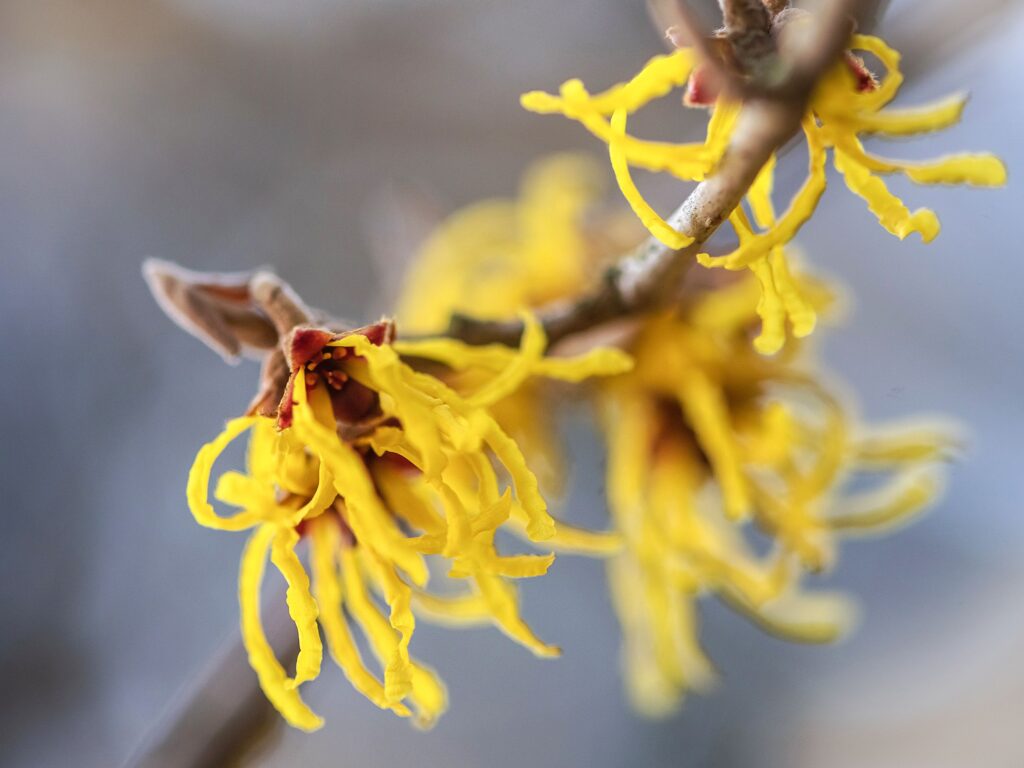
Instead of scratching those red bumps on your skin, which only worsens the itching, it’d be better to rely on witch hazel to relieve mosquito bites.
Witch hazel is one of the oldest folk remedies used for treating many types of ailments.
For centuries, it was used by the natives in North America to alleviate inflamed skin [21].
It’s still highly effective today, even with the proliferation of commercial anti-inflammatory products.
The anti-inflammatory actions of witch hazel can be attributed to its astringent tannins, which have soothing effects on the skin [21].
It works even more effectively when combined with baking soda.
What You’ll Need:
- 1 teaspoon of witch hazel
- 1 teaspoon of baking soda
Recommended Directions:
- Mix the two ingredients.
- Blend well until you form a paste.
- Apply the paste to the itchy or inflamed skin.
- Repeat remedy twice a day for up to one week.
READ MORE: 12 Health Benefits of Witch Hazel That You Should Know About
10. Garlic
Many people see garlic as a wonder herb as it can effectively treat and ward off numerous health problems.
Even simple issues like those itchy swollen mosquito bites can be resolved by using garlic.
Garlic works because its organosulphur compounds inhibit the “formation of pro-inflammatory messengers” [22].
But that’s not all.
With its strong pungent aroma, garlic can also keep mosquitoes at bay, and therefore, prevent them from getting another bite on your skin.
Moreover, since garlic is a widely available herb, you won’t have a hard time putting this home remedy together.
What You’ll Need:
- 1 clove of garlic
- Honey
Recommended Directions:
- Use a mortar and pestle to crush a garlic clove.
- Peel it off.
- Gently press crushed garlic on the mosquito bite.
- Do this for 30 seconds.
- You may feel a stinging pain for a while.
- Apply a small amount of honey to the bite.
- Rinse with warm water.
- Repeat procedure twice a day for three days.
11. White Tea Bag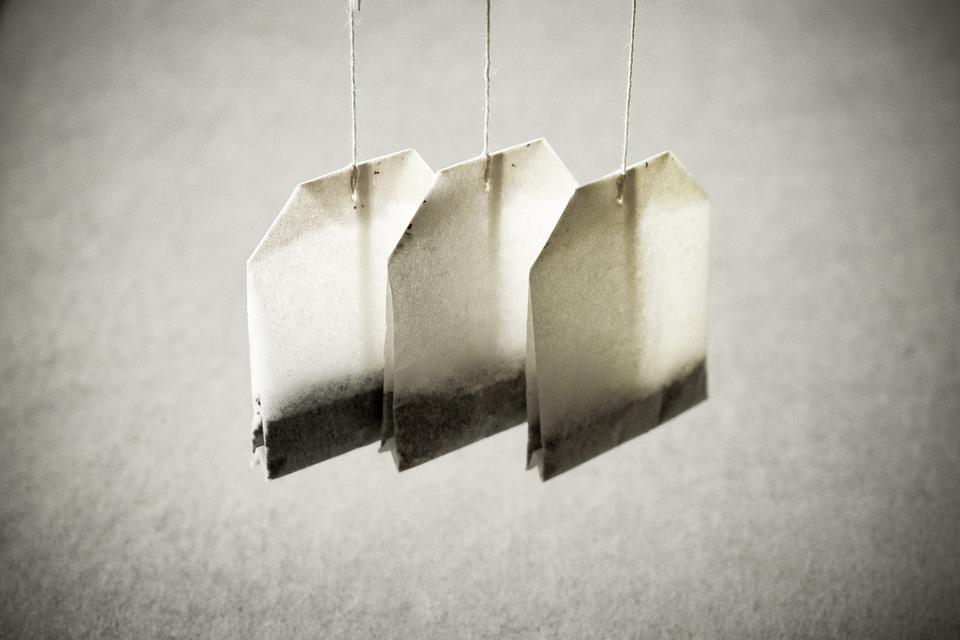
You’ve probably tried using the tea bag as a remedy for a bee sting, or if not, you’ve heard about it.
The good news is, it also works for mosquito bites.
According to a study that investigated the effects of white tea, rose and witch hazel on the skin cells, white tea is a potent anti-inflammatory that can help tone down the swelling of a mosquito bite [23].
Apart from this, white tea bag also leaves a cooling sensation on the skin, which can help in lessening the itchiness.
Since it’s loaded with antioxidants, it can also help the skin in other ways, such as in averting premature aging caused by free radical damage [23].
What You’ll Need:
- 1 white tea bag
Recommended Directions:
- Chill tea bag in the refrigerator for five minutes.
- Apply tea bag on the bite site.
- Let it sit for a few minutes.
- Repeat remedy twice a day until the inflammation subsides.
12. Cold Compress
A very simple but highly effective way of relieving mosquito bites is with a cold compress.
As reported in the Huffington Post, cold therapy numbs the nerves that are in charge of sending signals of pain and itchiness.
It also has the ability to ameliorate inflammation, which makes it a perfect remedy for small but annoying insect bites.
Hot compress also works, but only for a short while.
Once you remove the hot compress from your skin, the itching will only get worse.
So it’s better to stick with cold therapy for this particular problem.
What You’ll Need:
- 1 bowl of ice
Recommended Directions:
- Wrap ice using a towel.
- Press gently on the mosquito bite for a few seconds.
- Repeat several times a day for up to one week.
13. Thyme
Thyme is best to enhance the flavors of your food but have you ever thought that it could be a remedy for mosquitoes?
The leaves of the thyme are used on potatoes, fish, and many more, but this time you can also use it as a natural remedy for bites from mosquitoes.
Thyme is a wonderful remedy which assists in easing the itching of a mosquito bite.
Thyme consists of anti fungal and antibacterial properties which help to reduce the irritation and infection on the skin around a mosquito bite.
How to Use:
- For achieving best results from thyme, you can mince the leaves and apply it on your mosquito bite and keep it for nearly 10 minutes.
- You can also use it in another way by preparing a concentrated liquid by boiling water and adding some sprigs of thyme.
- Allow the sprigs steep until the water is cooled down.
- Afterward, you dip a clean, soft cloth into the thyme-infused water and apply it on the affected areas.
- Put it on the mosquito bites for a few minutes.
- For best results, you can even wrap cloth soaked in thyme with an ice cube for getting the natural cooling effect. [4]
14. Lemongrass
The most irritating thing is having that mosquito whine in your ears and followed with a painful bite.
Don’t stress out, as there is a natural solution- lemongrass.
Keep reading to discover how you use lemongrass to repel the mosquitoes.
Lemongrass is the most widely used herb in the world, and if you use it, then your problems related to mosquitoes will be solved easily.
Many studies proved that Lemongrass had shown mosquito repelling activity to a great extent.
There are two main components known as geranial and neral present in the lemongrass essential oil which helps to repel mosquitoes.
If you love gardening, then you can grow a lemongrass plant in your garden as it will to help to keep the mosquitoes far away from your garden.
You can also use lemongrass oil as a repellent spray in the areas where there are more mosquitoes.
How to Use:
- For the spray, you need about 20 drops of lemongrass essential oil along with 2 cups of water.
- Combine these two in a spray bottle and spray it on your skin to keep mosquitoes away or on the areas where the mosquitoes arrive the most.
- Keep the mosquitoes out of your house by using this natural herb, lemongrass. [5]
READ MORE: 11 Best Essential Oils for Bed Bugs Bites Remedy
Some Q&A About Mosquito Bites
Q. Is mosquito bite a thing of great concern?
A. As we all know that mosquitoes are vectors for many complicated diseases. In fact, they help in transmitting these diseases from one person to another. Commonly, the mosquito is responsible for spreading diseases like dengue, malaria, chikungunya, yellow fever and more. So, getting a bite from a mosquito is alarming that you can get any of these diseases. So, you should be worried if you get a mosquito bite. However, trying the above home remedies to cure mosquito bite can help you greatly.
Q. What type of clothing is best to avoid getting bitten by mosquitoes?
A. There are certain types of clothing that you can wear in order to avoid getting bitten by mosquitoes. These are:
- Wearing long-sleeves, long pants and socks when outdoors and especially whenever it’s possible
- Using repellents to treat clothing
- Using a mosquito netting when sleeping
- Dark colored clothes attract mosquitoes so avoid wearing that
Q. Is there any specific time when mosquitoes bite?
A. Mosquitoes usually bite at night, that is when the sun goes down and till it comes up. So, you should consider limiting or omitting outdoor activities during this time period.
Q. What changes can I bring to my home to avoid getting bitten by a mosquito?
A. You can try doing the following to avoid getting bit by mosquitoes. These are:
Shutting windows and doors so that mosquitoes can’t get in
check to see if your mosquito netting is acting properly or is damaged somehow
Drain sources of standing water so that mosquitoes cannot lay eggs in it and cause problems
Check to see if there any rain gutter around the house and if it is filled or not. It is because these places are the perfect breeding areas for them.
Q. Why does it itch after a mosquito bite?
A. The itching sensation is brought by the body as a reaction to the mosquito’s bite which contains anticoagulants for the mosquitoes to suck the blood out.
Bottom Line
Allergies due to mosquito bites will cause red and itchy bumps to form on your skin.
Therefore, you should avoid getting bit by a mosquito.
The best way is to try home remedies for mosquito bites to cure the allergies. These will give you quick relief and they are relatively easy to follow.
So, always be aware of mosquitoes around you and try the home remedies for mosquito bite when you need them.
Read Next: 7 Essential Oils for Chiggers Bites & Relief from the Itch

